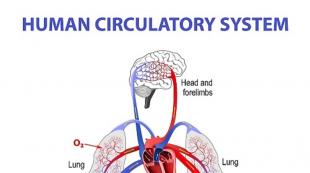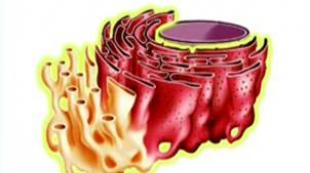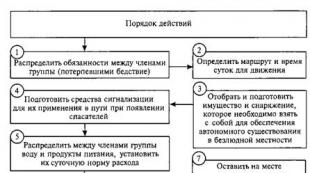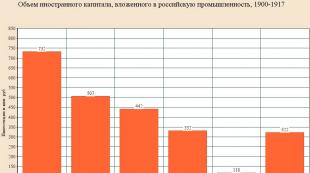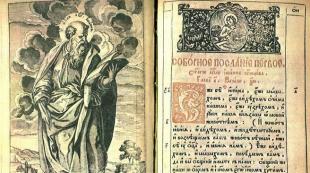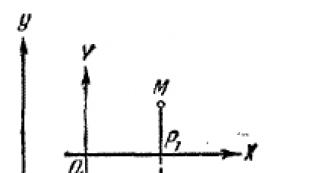Two n is written in. H and nn in adjective suffixes. Important notes regarding the rules described
This note is addressed to those who still have not learned how to determine how many letters n write in one word or another. Or those who re-read the rules for the tenth time and cannot understand them. Make yourself tea, make sandwiches. The conversation will be serious.
How to reduce the probability of correct spelling
Easily. Write at random or because it looks so "beautiful". Or first and second at the same time.
How to increase the likelihood of correct spelling
Do not be lazy and do not skip any of the points of the algorithm. Only then will you bring the skill of determining the number of letters n in a word to automatism.
Aerobatics - determine the amount n on the run.
You can, but not right away.
Sequencing
To begin with, we always determine the part of speech. You need to do this on the question that we ask by the way.
- Noun - Who? What?
- Adjective - Which?
- Short adjective - what?
- adverb - How?
- Participle - Which?
- Brief Communion - what?
- verbal adjective - Which?
You already have a question: how to distinguish between those parts of speech that answer the same question?
Adjectives and participles

The adjective is derived from the noun, and the participle is derived from the verb.
Long is an adjective because it answers a question Which? and is derived from a noun length.
strewn is a participle because it answers a question Which? and is derived from the verb strew.
By the way, participles also have characteristic suffixes. In the forms of the present tense: -usch-, -yusch-, -ash-, -yashch-, -em-, -om-, -im-. In past tense forms: -vsh-, -sh-, -in-, -t-, -enn-, -yonn-, -nn-. These suffixes are used as an additional check to see if you have identified the correct part of speech.
Participles and verbal adjectives
Now we have one more problem: both participles and verbal adjectives are formed from the verb. Both answer the question Which?. How to distinguish them?
First, the verbal adjective is formed from the imperfective verb, and the participle is formed from the perfective verb.
How to determine the type of the verb? Easily. If he answers the question what to do?, then the view is imperfect (denoting an incomplete action). If he answers the question what to do?, then the view is perfect (denoting a completed action).
Secondly, verbal adjectives do not have dependent words.
A dependent word is a word to which you can ask a question from the main word.
Try to determine for yourself which of these words is a participle and which is a verbal adjective: a solved problem, a loaded car.
Answer. Solved- participle. Here are all the arguments: it answers the question Which?; derived from the verb decide; this verb is perfective because it answers the question what to do?.
loaded- verbal adjective. And here's why: answers the question Which?; derived from the verb ship; this verb is imperfective because it answers the question what to do?; dependent words are missing.
In order for a verbal adjective to become a participle, it is enough to do one of two things:
- Add dependent word.
A man-loaded car. loaded by whom?- human. Now this is communion. - Change the form of the verb.
loaded car. Formed from a verb download which answers the question what to do? and therefore belongs to the perfect species.

Short adjectives and short participles
The sequence of actions is as follows:
- Realized that the word answers the question what?.
- We think from what full form the word is formed.
- We determine the part of speech in the full form (we read the differences between adjectives and participles above).
Here is a table to illustrate.
Hooray. Now we know what part of speech our word belongs to.
Applying the rules
See how easy it is when we know the part of speech:
We also write two letters n in participles with suffixes -ova- And -Eve-.
In a word asphalted write nn because there is a suffix -ova-.
Make sure that -ova- or -Eve- were suffixes. In words forged And chewed there are no such suffixes. They have roots cove- And zhev-. These words contain one letter n, because they are verbal adjectives.
You also need to remember the words: unexpected, unexpected, seen, unseen, seen, read, heard, unheard, desired. Just remember them.
It remains to deal with adjectives, nouns and adverbs.
In adjectives and nouns we write one n only in one case: if there is a suffix -en-, -yan-, -in-: leather en th, silver yang oh, chickens in oh, sand en ik. Exceptions: glass, tin, wood.
We write in adjectives nn in the following cases:
- In suffixes -he N-, -enn-: station he N th, time enn th.
- If the word is formed from a noun whose stem ends in -n: tuma nn th.
Pay special attention to the second point. Without it, you would write in a word fog one letter n because there is a suffix -en-. But this word has no suffix -en-! Why? Because -an- is part of the root. The word is formed from a noun fog, whose base ends with n. Adjectives are written by analogy pocket, long, citric and many others. Don't forget this rule.
Words windy, oily, oil are not adjectives, since they are formed from verbs: wind, oil. Here everything works according to the rules of verbal adjectives and participles. Or just remember that these three words are spelled with the same letter. n. In other cases, already with two (wind n oh no wind nn th).
OK. What about short adjectives?
Everything is simple here: the same number of letters are written in them n, how many and in total.
What about adverbs?
It's the same story here. We write the same n how much in the word from which the adverb is formed.
Slowly- adverb because it answers a question How?. Formed from an adjective slow. In this adjective we write nn in suffix -enn-, therefore, in the adverb we write the same way.
Attention! An adverb can be formed not only from an adjective, but also from other parts of speech. For example, confusingly explain. The logic here is tricky. Adverb confused derived from the word confused, which is a verbal adjective (answers the question Which?; no dependent words; formed from an imperfective verb confuse). Because the confused- verbal adjective, then in it we write one n. And if so, then in the dialect, which is formed from it, we write the same amount.
A little exercise. Explain the setting n-nn in a sentence.
Pickled mushrooms, fried sausage, buttered rye flatbreads, condensed milk, beef liver, baked potatoes, slightly salted in ash, and a sip of a drink infused with some outlandish drug will seem delicious in the fresh air. to the most sophisticated gourmet.
So, first you need to determine from which part of speech the adjective is formed, since it can be a denominative adjective, that is, formed on behalf of a noun, and a verbal one - formed from a verb.
Rule I. H-HH in adjective suffixes formed from nouns
1. One letter n is written:
- an, yang, in:skin - leather en th, clay - clay yang oh, nightingale - nightingale in th; exception: in words trees yann th, tin yann oh, glass yann th two letters n are written;
- in primitive adjectives, or native adjectives: scarlet n oh, go n th, green n oh, beautiful n oh, swi n oh si n oy, straight n oh, blush n oh, yu n th. In given adjectives letters n included in the root.
2. Two letters n are written:
- in adjectives formed from nouns with a base on n And me with a suffix n: seed - seed n oh lemon lemon n th.
In adjective seed n Ouch two suffixes - en And n so there are two letters in the word n. In a word lemon n th one letter n will refer to the root, and the second n- to the suffix, so two letters will also be written in it n.
Note: adjective nameless formed from a noun Name, combined only with the word finger (bezim yann th finger); with other words, for example, station, height, hero, etc., the adjective nameless is used (bezim yonn th height);
- in adjectives formed from nouns using suffixes onn-enn: celebration - celebrations enn th, lecture - lectures he N th; exception: in a word wind en th write one letter n, but two letters will be written in prefixed formations n: without wind enn th, about wind enn th, about wind enn th, etc.
Rule II. Н-НН in adjective suffixes formed from verbs
- in adjective suffixes formed from imperfective verbs: smoke - kopch en th sausage, sluggish - sluggish en th fish; exception: in words affairs nn oh, wish nn oh, gem nn oh, slow enn oh, invisible nn oh, ugly nn oh, awesome n oh, bad luck nn oh, unheard nn ouch, nechaya nn oh, holy enn th, chwa nn oh, check nn th spelled two n, despite the fact that these words are formed from imperfective verbs, as well as in words landing en th(father or mother) name n th(brother or sister), smart en th.
One letter n is written:
The verb asks a question: smoke(what to do?) - an imperfective verb, so the formed verbal adjective will be written with one n -kopch en ah sausage.
Two letters n is written:
- in adjective suffixes formed from perfective verbs: say - say nn oh word, buy - purchase enn th tickets; exception: in a word run en th write one letter n, in prefixed formations - two: from run enn th, By run enn th.
From the verb, the question is asked: to say (what to do?) - a perfective verb, so the formed verbal adjective will be written with two n -skaz nn oh word;
- in suffixes ovan-evn full and short forms of adjectives formed from verbs: excite - excite nn th actress, actress excited nn a, organize - organize nn students, students of the organization nn s ; exception: in words chewing n oh, cool n oh, cova n th write one letter n, So ova-eva are part of the root, and are not part of the suffixes ovan-evn, but two letters will be written in prefixed formations n: about chewing nn th , is biting nn th, under kova nn th.
Spelling Н and НН in different parts of speech
noun
HH
1. Nouns ending in -NICK, -NITSA and OST, formed from adjectives withnn also written withnn : society nn th - society nn ik - society nn itz-society nn awn.
2. Cnn nouns are also written with suffixes
-NICK, -NICA from nouns with stem onn: tribute - yes nn ik - yes nn itza .
H
1. In nouns formed from an adjective withn , are written withn : Yu n y - y n awn.
Remember:
prida n oh, but shameless nn itza
brought up nn ik
elect nn ik
sacred nn ik
setting nn ik
drowned nn ik
brew n ik
smoked n awn
ice cold n oh
muche n ik
harder n ik
study n ik
adjective
HH
1. In adjectives formed with a suffixn from nouns with stem onn: kame n b - kame nn oh, with n -so nn oh, ba n I - ba nn th.
Remember:
bar n uy
saza n uy
tulle n uy
This also includes adjectives formed from neuter nouns inme : Name- name nn oh, flame - flame nn th, tribe - tribe nn Ouch .
Remember:
green n th (but green tent)
blush n th
svi n Ouch
Yu n th. They are formed without the help of suffixes.
nameless nn th
mean nn th.
2. In adjectives formed from nouns using the suffixes ENN, ONN:revolution - revolution he N th, society - society enn th .
3. In adjectives: tin nn oh, tree nn oh, glass nn th.
4. In adjectives in -OVANNY, -ЁVANNY, formed from verbs: take risks -risky nn th , uproot -korcheva nn th.
Exceptions : kova n oh, chew n th.
5. In a few adjectives formed from verbs without prefixes or with negation not (in these adjectives nn are clearly heard ): wish - wish nn oh, no wait - waiting nn oh, ugly nn oh no nn oh, gem nn oh, holy nn th .
6. In adjectives formed from verb stems with prefixes:lost nn th (view), worn nn th (suit) .
7. Short adjectives are writtennn , if they are formed from complete, havingnn : length nn th - length nn a, tse nn th - tse nn a, celebration nn th - celebration nn s .
8. In the first stem of complex adjectives, it is writtennn , if it is formed from an adjective withnn : vago nn o-locomotive park (vago park nn th and locomotive).
H
1. In non-prefixed adjectives formed from imperfective verbs (these verbs answer the question what to do ?): rage - rage n oh, cook - cook n th.
Remember: Non-prefixed adjectives of the type in question must be distinguished from participles similar to them, which are written with nn . Such participles carry dependent words:
Gruzhe n th (adjective) platform – heavier nn th (communion) stone platform.
2. Adjectives with the suffix IN:chickens in oh, guest in th.
3. Adjectives with the suffix AN, YANG:silver yang ouch, cannabis yang ouch, ice yang Ouch. Exceptions: tin nn oh, glass nn oh, tree nn th.
4. Adjectivewindy. Prefix adjectives formed from the wordwind , are written with nn:no wind nn oh, tomorrow nn oh, downwind nn th .
5. In the first stem of complex adjectives, n is written if the first stem is formed from a noun on n: wave n construction plant (machine building plant) n ).
We need to distinguish:
wind en weather - windy yang oh engine
oil en th pancake - oil yang oh cookies
silver yon th spoon - silver yang th bowl
Sol yon th fish - salt yang oh pole
Communion
HH
1. In the full passive past participles formed from verbs with prefixes:With break - break nn th, By sow - sow nn th .
Exceptions:
name n yy (brother)
planted n yy (father)
smarter n th (boy)
2. In full participles formed from non-prefixed verbs of the perfect form (these verbs answer the question what to do ?): buy - purchase nn oh, captivate - captivity nn th.
Remember:
nezhda nn th
bad luck nn th
unheard nn th
unseen nn th
affairs nn th
desire nn th
not tea nn th
3. In participles on -OVANNY, -ЁVANNY:organization ovated .
Remember:
kova n th
chewing n th
smoother n th - smoother n th
washing n th - rewash n th
writing n oh beauty
Easier n oh sunday
smoother n th
domotka n th
little traveler n th
4. If the sacrament has a dependent word:sowing nn through a sieve flour.
H
1. In short participles:heard n uh, story n s, treason n s.
2. If the sacrament does not have a dependent word, prefixes:scrap n th line
Adverbs
HH
1. If nn is written in the suffix of a full adjective or participle, then nn is also preserved in the adverb:scattering nn th man - I look scattering nn oh fright nn th facial expression - fear nn oh subdued .
Writing one or two letters "H" is the most difficult rule not only for sixth graders, but also for school graduates preparing for the exam.
This rule combines different parts of speech, and the conditions for writing letters are not at all similar. It is necessary to pay attention to the morphemic composition of the word, and to the way the word is formed, and even to its meaning. And how many exceptions! Therefore, we will learn to choose one or two letters "H".
Spelling Н and НН in different parts of speech
First step.
1. Determine the part of speech.
Let's say it's a noun...
2. Determine what the root of the word ends with.
We write NN
- if the root of the word ends in N, and the suffix begins with N: maliN-Nick, friendN-Nick, mosheN-Nick (but: workerNick!);
If the noun is formed from an adjective that has NN, or from participle: fog NN-awn (foggy), izbalova NN-awn (spoiled).
- if the noun is formed from an adjective that has H (including in the words of exceptions): Maslen-itsa (oily), gostIN-itsa (living room), hemp-ik (hemp), varEN-ik (boiled), windy-ik (windy), smart-awn (smart);
If the noun is formed from heterogeneous nouns (in MY: name, tribe, seed, etc.): nominal, tribal, seed;
Exception words deer, pork, sheep, carp, seals, etc. are written with one H, since they are formed from nouns with a base on H (root: deer, pig, ram, carp, seal, etc.).
More exceptions to the rule: young, crimson, spicy, reddish, ruddy, blue, green, dowry.
Step two.
Let's say it's an adjective...
formed from the name of a noun or adjective, then it is called nominal or denominative and is very different from the adjective that is formed from an imperfective verb.
We write NN
- if formed with the help of the suffixes ENN, ONN: triumph - solemn, revolution - revolutionary, healthy - healthy;
Exceptions to the rule: windy (but: windless!).
If the root of the word ends in N: soN - sleepy, desert - deserted, ham - ham.
And now about when it is written N:
- if the adjective is formed from nouns using the suffixes AN, YANG, YING: skin - leather, silver - silver, ant - ant;
Exceptions to the rule: GLASS, TIN, WOODEN.
If the adjective depends on the lexical meaning:
with the wind (windy weather, but a windy girl),
powered by the force of the wind (wind turbine, pump, windmill), but spreads as fast as the wind (chicken pox);
smeared, soaked or stained with oil (butter pancake, oil week, oil eyes, oil voice, oil bottle);
acting with oil, diluted with oil, designed for oil (butter cookies, oil paint, oil engine, oil bottle);
subjected to silvering, covered with silver (silver spoon);
made of silver (silver bowl);
Let's say it's an adjective...
formed from an imperfective verb.
Then H is always written in it: rabid (enrage) dog, boiled (boil) potatoes, sauerkraut (sour) cabbage, boiled (boil) water, smoked (smoke) fish, etc.
Exceptions to the rule: made (view), desired, slow, unseen, unexpected, awake (eye), unexpected, unheard, unintentional, sacred, cutesy, swaggering, chased.
The adjectives felted (from felting) and felted (from felling) differ in writing a vowel before H, since the suffixes of the indefinite form of the verbs from which they are formed are different.
Adjectives with the prefix NOT, formed from imperfective verbs, are written with one H, since NOT, attached to the verb, does not change its form: unbleached ceiling, quicklime, untraveled road, unbaptized child, unpaved street.
In complex adjectives such as ironed-over-ironed, broken-broken, erased-over-washed, darned-darned in the second part, it is recommended to write one N, since the prefix PERE does not form a new word (participle), but only indicates a high degree of quality, called a complex adjective .
Compound adjectives such as plain-dyed, hot-rolled, gold-woven, gold-forged, little-drilled, little-burnt, finely crushed are written with one H; they are formed from a combination of adverbs (smoothly, hotly, little, a lot, etc.) and verbal adjectives that have H: smoothly + colored.
BUT: if an adverbial word is combined with an adjective formed from a prefixed verb, the compound adjective is written НН: smooth-colored (smooth + colored), freshly frozen, freshly cut.
Exceptions to the rule: named brother, planted father, intelligent child.
Step three.
LET'S TURN VERBAL ADJECTIVES INTO PARTICIPLES!!!
We write NN
- if there is OVANNY or ЁVANNY (that is, they have suffixes OVA-EVA): pampered, pickled, organized;
exceptions to the rule: chewed, pecked, forged, in which the combinations OB, EV are part of the root and only the suffix H is added to the stem of the verb;
in prefixed formations, NN is also written: horseshoe, unforged, pecked, chewed;
If there is a prefix other than NOT (unpainted floor, overcooked fish, gold-plated bracelet);
If there are dependent words (painted floor, fish fried in oil, mown slanting meadow).
Step four.
Let's say it's a passive participle...
It is always formed from a perfective verb. That is, it always has a prefix: fenced, resold, trampled!
If it is FULL, ALWAYS write HH!
The participle can also be formed from a non-prefixed verb: buy - purchased, quit - abandoned.
In participles, the suffixes OVA-EVA are often found, and then we also write NN!
They differ in the spelling of the participle from the prefixed formations of the verbs to weigh - to hang, to knead - to interfere, to roll - to swing.
From verbs to ET, IT, the participle requires the suffix ENN (hung, hung, hung, hung).
From verbs on AT, YAT, the participle requires the suffix HH.
The lexical meaning of the words should be kept in mind:
hang - close with a curtain (a tightly curtained window did not let in light);
hang - hang, put on something (hung door);
hang up - hang on the whole space (All the walls were hung with bunches of herbs);
hang - hang in large quantities (Various posters were hung in the corridors);
hang - hang from all sides, hang everywhere (Ships hung with multi-colored flags look festive);
hang up - hang in different places (In summer, well-hung linen dries quickly).
In a stable combination, the shot sparrow, the adjective is written with one N.
If the participle is SHORT, then write N!
The problem is solved, the floors are painted.
Can I ask questions by whom? what ?, to clearly prove that this is a short participle, and not a short adjective.
The territory near the new house has not yet been landscaped by residents (communion).
The territory near the new house was small, undeveloped (adjective).
The girl was musical and well-read (adjective).
The population was excited by the message on the radio (communion).
Mom is excited today (adjective).
The sea today is agitated by the wind (participle).
If the sentence contains adverbs formed from an adjective or participle, ask them questions from the verb: She excitedly walked around the room (how? walked - excitedly). As a rule, the same number of N is written in adverbs as in the word from which it is formed.
And now you can move on to practice!
It is written -N-:
It is written -НН-:
In full passive participles formed from perfective verbs | purchased notebook (from perfective verb buy) |
In full passive past participles | abandoned stone |
In a sacrament that has dependent words with it (i.e. in participle turnover) | dyed(with what?) oil paint door; boiled(where?) Potatoes in a pot |
With prefix (except non-) | painted, broken |
In participles on -ovanny (-evanny) | marinated in vinegar |
In participles expressing a temporary state | He, wounded waiting for help |
NOTES:
1) With all the many cases when NN is written in the full passive participle, they are all united by one circumstance: in all cases these are past participles. Therefore, it turns out that the past tense is a sufficient condition for writing NN in full participles. Moreover, we can say this: full passive participles are always written with two H. If there is one letter H in the word, then this is not a participle, but a verbal adjective (for example, baked potato, fused cheese).
2) Do not forget that participles can turn into adjectives - and in this case one letter H is written in the word. Therefore, it is important not to confuse participles and adjectives.
Examples :
called brother - called brother
(participle transition named into an adjective named th);
planted father - planted in the yard
(participle transition planted into an adjective planted).

